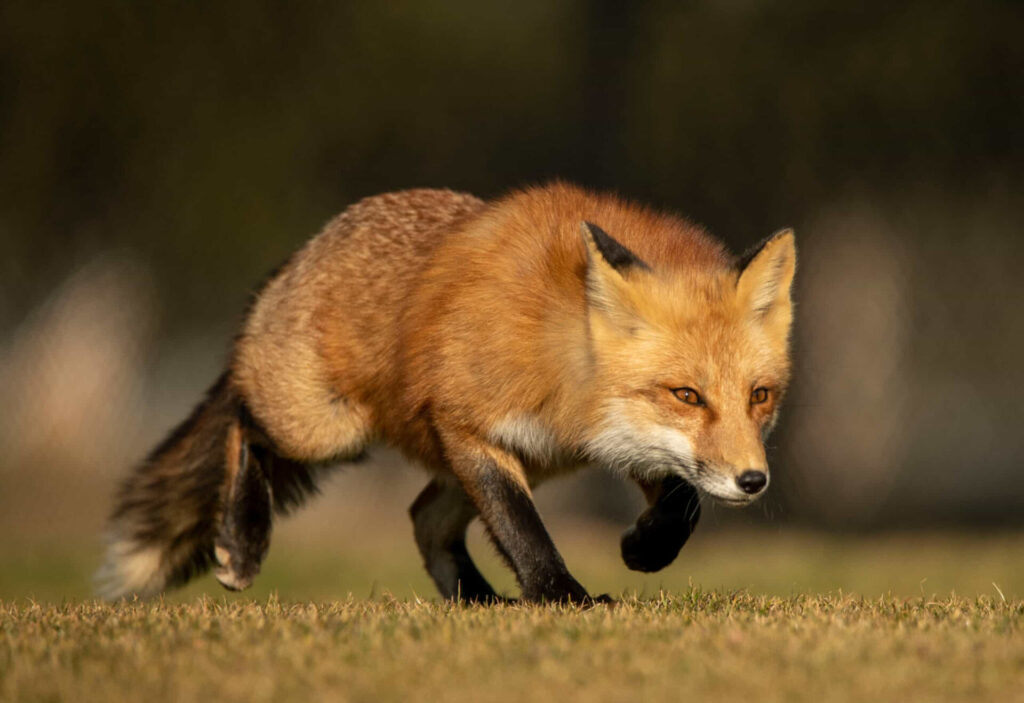Table of Contents
ToggleIntroduction
Foxes, those elusive and smart creatures of the wild, have long interested academics and wildlife enthusiasts with their unusual activities. One of the most distinguishing and vital actions in the life of a fox is its propensity for digging holes. Do Foxes Dig Holes? In this detailed examination, we will go deep into the reasoning, examining the numerous elements of this intriguing feature of animal behavior.
The Evolutionary Imperative Of Fox Dens
To comprehend why foxes dig holes, it is vital to consider the evolutionary perspective. Foxes belong to the Canidae family, a lineage of carnivorous mammals with a shared history of burrow-dwelling. The adaption of digging holes can be linked to the requirement for refuge and protection from predators, making it a vital aspect of the fox’s evolutionary survival toolkit.
The Anatomy Of A Fox Den: Fox holes, also known as dens or burrows, are not simply simple excavations but sophisticated constructions with distinct purposes. Fox dens typically have a main entrance, escape routes, and a nesting chamber. The complexity of these constructions is a testament to the fox’s ingenuity and flexibility, providing them with a multifunctional place for diverse daily activities.
Nesting And Reproduction Strategies: One of the key factors behind foxes digging holes is the necessity for a secure location for nesting and raising their young. Female foxes, or vixens, demonstrate exceptional maternal instincts, methodically preparing the den for the arrival of their cubs. The den acts as a protective environment, hiding the vulnerable young foxes from predators and environmental elements throughout their early stages of life.
Survival Tactics: Protection And Safety
Intricate Den Construction:Its capacity to construct elaborate dens is at the heart of a fox’s survival strategy. These caves are shelters and sophisticated structures with several entrances and escape routes. The complexity of the den acts as a natural defense mechanism against predators, allowing foxes to outmaneuver dangers with agility and cunning.
Swift and Agile Escapes: Foxes are renowned for their quickness and agility. When approached by predators, their innate response is to flee, utilizing their fast movements to evade capture. The many exits of their nests offer them rapid escape routes, boosting their chances of outpacing larger or slower predators.
Nocturnal Habits: Foxes are crepuscular and nocturnal animals, meaning they are most active between dawn and dusk. This behavior is a tactical approach to avoid confrontation with larger predators that may be more active during daylight. By picking optimal times for hunting and foraging, foxes limit the risk of encountering potential hazards.
Other Tactics
Mimicry and Stealth: Foxes are adept at blending into their surroundings. Their fur hue, frequently a mix of grays and reds, provides great camouflage in varied situations. Additionally, their stealthy movements and ability to tread silently aid them in tracking prey or evading notice by predators. This imitation contributes greatly to their survival by minimizing the possibility of becoming prey themselves.
Utilizing Urban Landscapes: In adapting to human-altered surroundings, some foxes have become skilled at navigating urban landscapes. The abundance of houses, gardens, and parks provides sufficient hiding spaces and opportunities to forage for food. Urban regions also have fewer natural predators, allowing foxes to exploit these environments for survival.
Foxes are versatile creatures, and their dens play a significant role in temperature regulation. Whether battling the searing heat of summer or the biting cold of winter, foxes exploit the insulating capabilities of their dens to maintain a stable and comfortable environment. This versatility allows them to live in varied conditions, further highlighting the necessity of their hole-digging habit.
Food Storage And Foraging Habits
Opportunistic Foraging: Foxes are opportunistic hunters and foragers, preying on small mammals, birds, insects, fruits and scavenging carrion. Their diversified diet allows them to exploit various food sources, responding to the seasonal availability of different prey and vegetation.
Hunting strategies: Foxes demonstrate various hunting strategies appropriate to their target. Their quickness and acute senses let them stalk, pounce, and catch tiny mammals with precision. They may also deploy a characteristic “pouncing” action, where they leap into the air and land on their prey. This mix of skills makes them effective hunters.
Caching Excess Food: To deal with variable food availability, foxes participate in caching or storing excess food in their dens. This habit is particularly noticeable at times of plenty, such as the abundance of small mammals or seasonal fruit. The saved food is a reserve, maintaining a continuous supply during lean periods, especially in hard winter conditions.
Scavenging and Carrion Consumption: Foxes are skilled scavengers, relying on carrion and leftovers from larger predators’ carcasses. Their strong sense of smell allows them to identify carrion over vast distances. This scavenging habit is a practical approach to collecting food and decreases the energy expenditure required for hunting.
Adaptation To Urban Environments
Foxes have exhibited a remarkable capacity to adjust their feeding patterns in urban areas. They scavenge from human trash, locating leftover food in bins and dumpsters. This adaptation to human-altered settings has helped their success in urban contexts.
Communication and Territory Marking: Foxes are gregarious creatures with a sophisticated communication system. The digging of holes is connected with scent marking, a fundamental part of fox social behavior. The entrance of a den becomes a canvas for scent markings, providing information about the fox’s presence occupancy and potentially signaling the availability of a mate—this kind of communication benefits in avoiding territorial conflicts and fostering social connections among foxes.
Conclusion
The habit of foxes digging holes is a complicated behavior firmly ingrained in their evolutionary past and important for survival. From providing a secure haven for reproduction and protection to facilitating heat control and serving as strategic resource storage, fox dens are dynamic ecosystems within the wider fabric of the natural world. Understanding the subtleties of foxhole digging deepens our admiration for these resourceful and adaptive critters that continue to grab our imagination.







